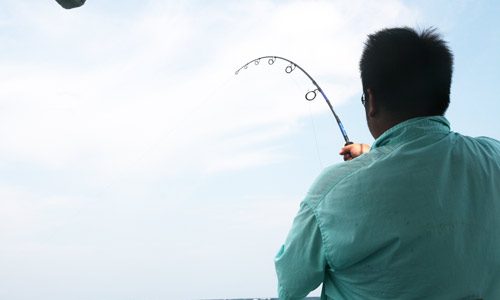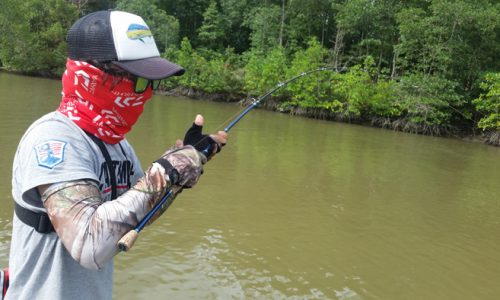Curse Of The Unlucky Tackle Part 8: A Den Of Thieves
By The Angler
Well, we have discussed plenty of reasons why your fishing tackle may not be the cause of your failure to catch fish on them. But then again maybe some fishing tackle are just unlucky. Or could it simply just be that the day you are fishing is just not your day. I believe that every angler have days where they just do not catch any fish despite trying everything in their knowledge box.
Now let us take a look at one final reason why you may not be catching fish and why your fishing tackle may not be cursed after all. I call this “A Den Of Thieves.” I am sure there are times when you’ve cast your bait out, and minutes later you notice your rod tip “dancing.” You pick up your rod, strike, and then you are left with a feeling of emptiness. You reel in a half eaten bait, or no bait at all. “Darn fish stole the bait,” you exclaim. This happens all the time when bottom fishing.
[ As for the PhD fishes, reduce your tackle size and change your technique. These fishes are cautious. …. ]
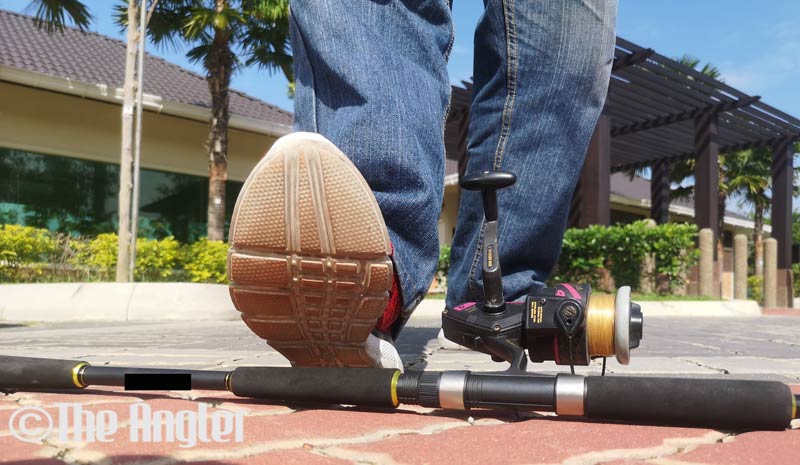
It is supposed to be bad luck to step over one’s rod but anglers have been doing these for years and are still catching fish. So….
Who Are These Thieves?
No, Ali Baba and his forty thieves did not have anything to do with it. So, who are the thieves? Well, they are probably small little fishes that nibble on the bait but are too small for the hooks that are used. This is common when fishing with dough or bread in ponds that are home to plenty of fishes that often spawn. Before the sizeable or rather targeted fishes can get to them, the small fishes clear off the bait from the hook.
University Level Fishes
Haha! when we fish, the fishes that we fish get educated too. Some fishes have better memory than others. They learn from past mistakes and the mistakes of other fishes. There is also such a thing called genetically inherited learning where fishes pass on their experiences to the next generation via their genes. The next generation becomes smarter.
This can very well be the reason why we sometimes see our baits being bitten off around the hook. For some reason the fishes know that a hook is there. They still eat the bait but they are careful enough to eat around the hook. I have experienced this at quite a few places including natural lakes and ponds. We (my fishing buddies and I) refer to them as fishes with PhDs.
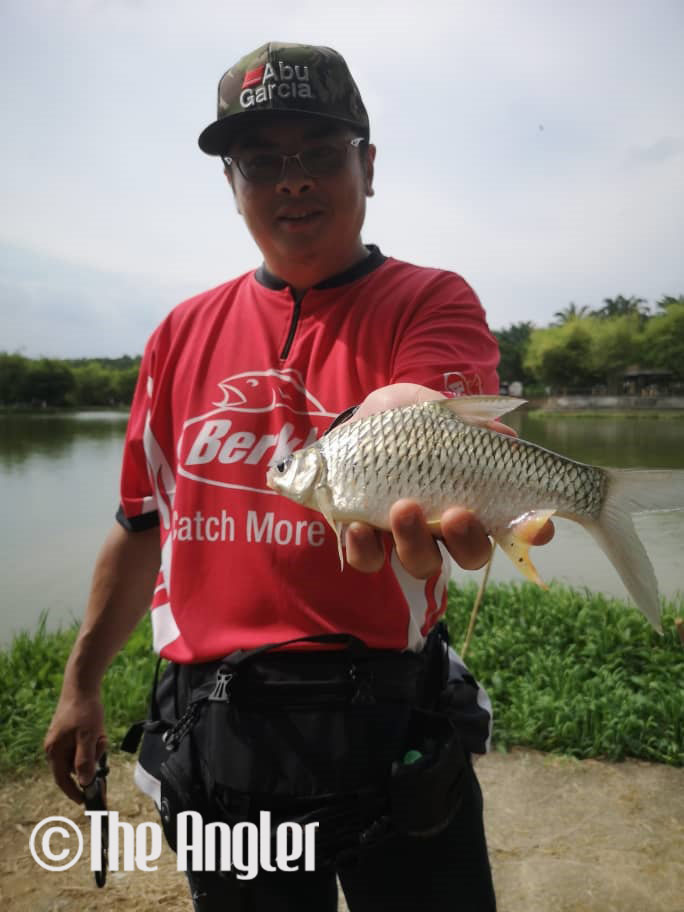
I got fed-up with these thieves and decided to down size to catch at least one. Here is what a thief looks like.
The Keys: What Can You Do?
When it comes to these thieves, there are some things that can be done. For small fishes, I usually just sit back and relax. Catching fish becomes less of a focus. My focus shifts from fishing to just hanging out with my friends. But should you prefer to catch fish, even the small ones; drop your tackle size down. Use lighter lines and a smaller hook. A small hook can still catch big fish should the big fish decide to take the bait. A big hook will very unlikely catch small fish.
As for the PhD fishes, reduce your tackle size and change your technique. These fishes are cautious. They are very alert. They have got a planned program of what to do when they see a certain bait that is often used. A change of baits will increase your chance of catching a fish.
Here is an experience that happened many years ago. I was fishing at a pond using bread as bait. The fishes were taking my bread but I was not hooking any of them up. They missed the hook all the time. After a while I decided to change my tactics. I looked around for natural baits. I saw a small green grasshopper on a blade of grass. I caught it and used it as bait. Within a minute I hooked on to a palm sized lampam (tinfoil barb). After that I was catching more lampams on a variety of baits.
See, sometimes its not the tackle that is unlucky but perhaps the the conditions and the tackle are not at a match just yet. A bit of tweaking can bring back all the luck. Look out for Part 9 in our next issue.
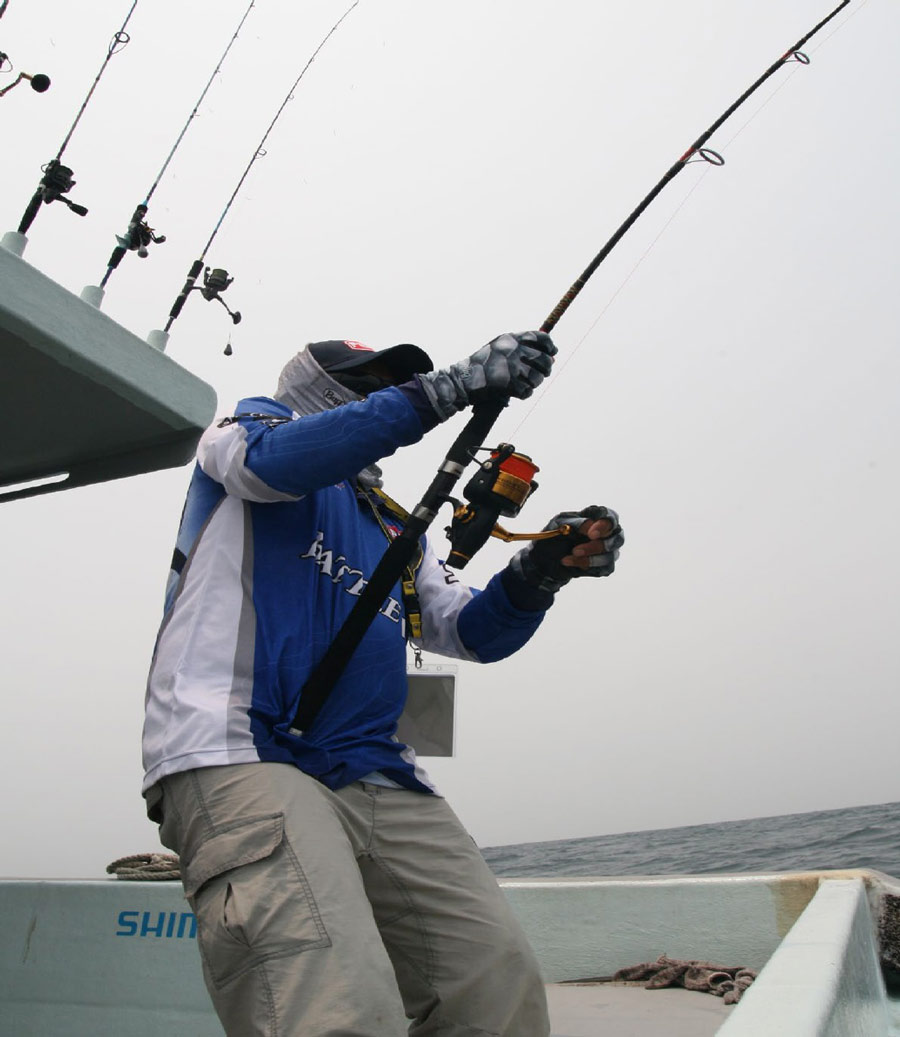
Contact us
For more information or should your have enquiries, do drop us an email.




